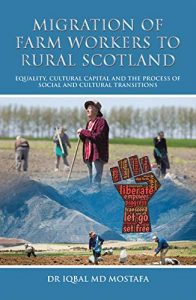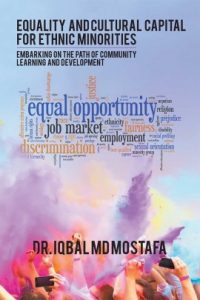
Buy the Book
 MIGRATION OF FARM WORKERS TO RURAL SCOTLAND: Equality, Cultural Capital and the Process of Social and Cultural Transitions
MIGRATION OF FARM WORKERS TO RURAL SCOTLAND: Equality, Cultural Capital and the Process of Social and Cultural Transitions
The migration of farm workers to rural Scotland is an important issue that relates to the existing theories and research in contemporary equality and cultural capital studies, particularly in regard to the exploration of how and in what ways cultural capital theory can be addressed to study migrant’s equality claims, the examination of how complex equality models can be used for inquiry into the reinforcement of inequalities in cultural capital and the accumulative effects of such inequality. In particular, the experiences of East European migrant farm workers challenge theoretical perspectives that apply a) an approach of equality claim from cultural capital, which emphasize b) equal right to recognition, and therefore, c) focus on entitlement to equal protection against any discrimination.
This book, therefore, offers us a way to explore these experiences with a call for attention to be paid to a large number of East European migrant farm workers who have migrated to rural Scotland to work in low paid jobs marked with low skills. Unlike majority members of a population, migrant farm workers often give up their cultural capital and take up low skilled jobs in order to gain opportunities for success in other spheres in their lives. Critiquing such a trade-off approach, if the sphere of migrants’ cultural capital is invaded and the cultural capital of local workers (native) is acknowledged, migrants are in a vulnerable position. I also argue although migrants’ achievements are devalued, and their substantive equality remains unprotected, their claim from cultural capital is relatively strong and valid to manage. The more vulnerable a migrant’s cultural capital is in terms of recognition and protection, the stronger his or her claim from cultural capital will be. Under the theoretical framework, I argue that if equal recognitions of cultural capital are not actively ensured, this is highly likely to produce increased claims to equality.
 EQUALITY AND CULTURAL CAPITAL FOR ETHNIC MINORITIES: Embarking on the path of Community Learning and Development
EQUALITY AND CULTURAL CAPITAL FOR ETHNIC MINORITIES: Embarking on the path of Community Learning and Development
This book contributes to our knowledge by examining several interrelated questions about what qualities are required of a better community, why recognition and protection of cultural capital is important for ethnic minorities to make them feel equal, and how closeness of ethnic minority groups to Scottish culture is important on which equality of cultural capital is greatly dependent. Much of the literature on communities is now concerned with these questions.

